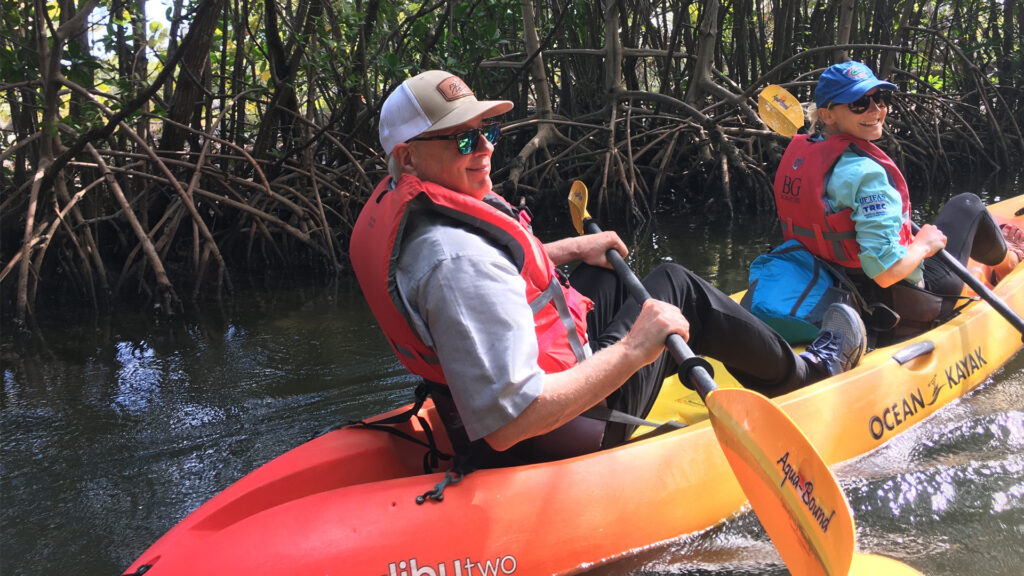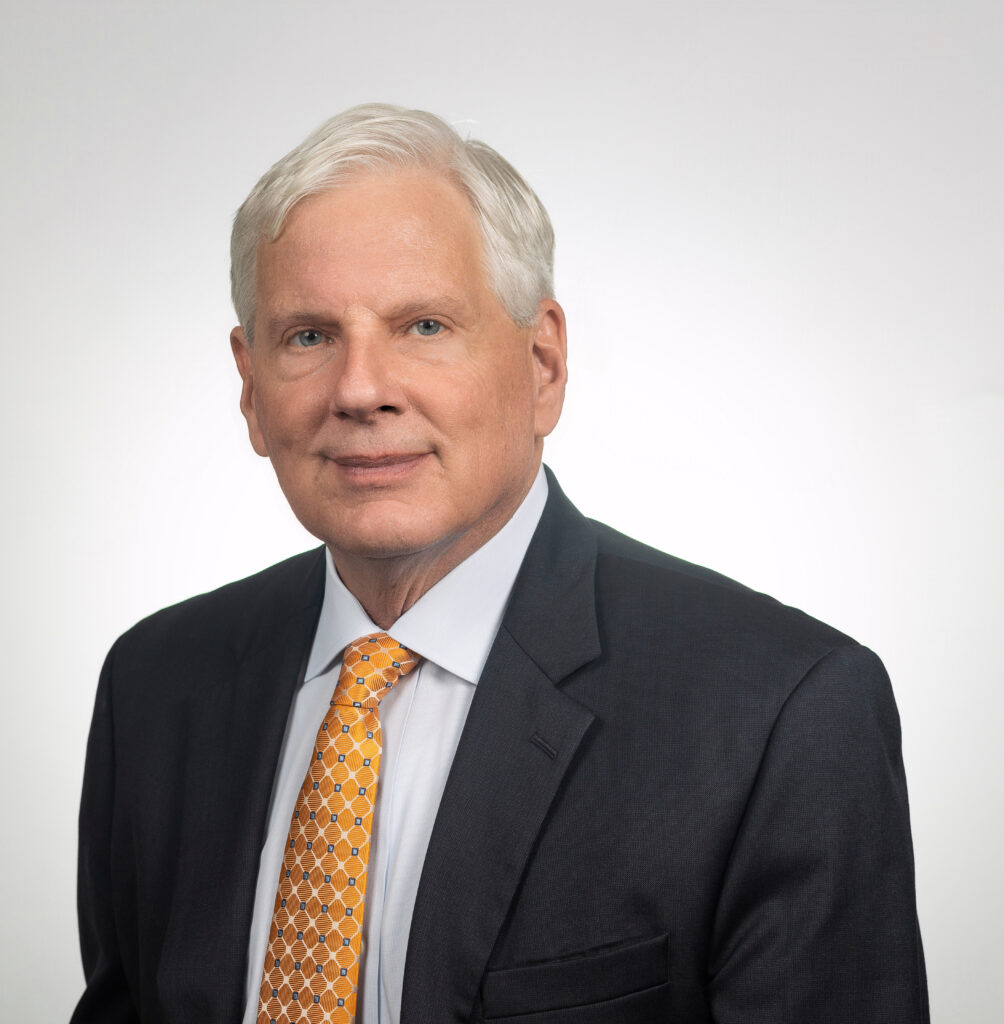By J. Scott Angle, UF Institute of Food and Agricultural Sciences (UF/IFAS)
We have a defense against surging sea water that we’re not using it to its fullest. What’s more, it’s already in place. It just needs some restoration.
It lines the coast, and while it’s fighting flooding, it’s also sequestering carbon and filtering water.
Mangroves are a big part of the seascape from Oleta River State Park to the Keys. That’s the range that biogeochemist Ashley Smyth and her graduate student Bella Reyes are monitoring to see how well mangroves perform all these jobs.
They also want to know how water quality affects mangroves. The same contaminants that can lead to harmful algal blooms might also damage our green infrastructure.

We need to know more about the benefits mangroves provide if we want to have an informed public policy discussion about how to make sure they continue as our natural bulwarks against surges. Smyth, a faculty member at the University of Florida’s Institute of Food and Agricultural Sciences Tropical Research and Education Center in Homestead, has the expertise, equipment, personnel and access to grant money to provide the science needed to answer such complex questions.
Without that science, it would be difficult to compare how an investment in taking care of our mangroves compares with, say, building another 100 yards of sea wall.
Research on mangroves is also important because they provide value beyond their function as shoreline stabilizers and water filters. Paddling through the mangroves with Smyth and Sea Grant agent Lisa Krimsky, I saw wildlife perched on branches. A needlefish passed like a jolt near the kayak. A heron high-stepped under a curtain of greenery. The mangrove canopy made for a shady passage on what even in February was a hot day.
Water management in Florida, whether in the Everglades or on the coast, has historically been response-driven. We tend to fix things after the fact. Looking to natural solutions, especially those that prevent or mitigate problems, can offer new, more cost-effective strategies to help control surge or improve water quality.
Figuring how nature operates is complicated. Figuring out how humans operate is equally so. Smyth is exploring how we can manage natural resources so they can clean up our mess. Krimsky explores what we can do to change humans’ mindsets so that we don’t make such a mess in the first place.
Smyth, Krimsky and Reyes do the field work of dropping sensors in the water to take the temperature of human impact, amassing data on everything from salinity to oxygen level to the presence of contaminants in the water and the soil. They also study the characteristics of the mangroves and document the size and number of which species of mangroves are present. Scientists aim to innovate our way out of a choice between austerity and environmental degradation.
We have to think of mangroves as more than scenery. They’re infrastructure, just like a road or a utility line. If we don’t take care of them, they won’t take care of us, much like a neglected road sprouts potholes or a downed utility line cuts off our air conditioning.

We don’t systematically take care of mangroves, though, the way we do with roads and utility lines. A better understanding of how important they are or the effects of our contaminants on them might change how we view them.
It may turn out to require public investments to protect and restore our shorelines. But in the long run we can’t afford not to enlist nature to work against a threat as big as a rising sea.
It’s the same with public university research. Getting good data and assembling the expertise to glean wisdom from it costs. But without it, we risk making decisions based on gut reactions, ideology, political expediency and misperceptions.
UF/IFAS has five Extension offices (which deliver university science to residents) and a research center in Miami-Dade County — local university scientists work on solving local problems.
You can support them by enrolling in Extension programs, volunteering for citizen science projects or to lead a 4-H club, and asking your elected officials to continue funding their work. When you do, they can continue to discover solutions or to make better use of solutions that are already there, like mangroves.
J. Scott Angle is the University of Florida’s interim provost and senior vice president for agriculture and natural resources.
Sign up for The Invading Sea newsletter by visiting here. If you are interested in submitting an opinion piece to The Invading Sea, email Editor Nathan Crabbe at ncrabbe@fau.edu.



